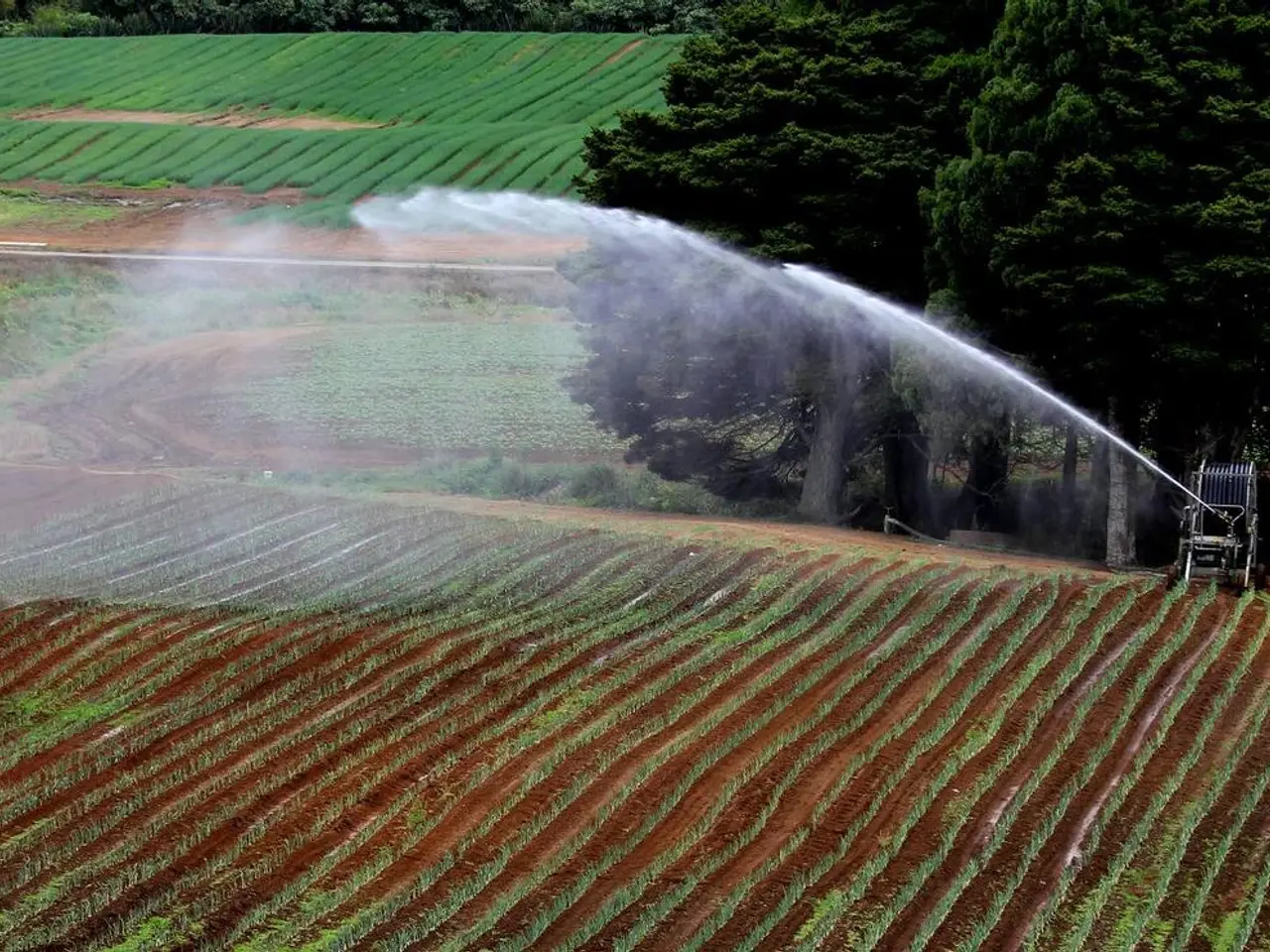AI Transforms Agriculture and Food Production Industry
In the global fight against climate change, a significant ally is emerging - Artificial Intelligence (AI). Integrating AI with regenerative farming practices is proving to be a powerful tool in addressing the challenges posed by a growing population and dwindling natural resources.
Germany is at the forefront of this revolution, with key actors such as the Federal Ministry of Food and Agriculture, research institutions like Geisenheim University, technology companies offering precision farming and robotics solutions, and specialized firms developing sensor and robotic technologies for dairy and crop management, working together to innovate in climate-adaptive agriculture. EU-funded projects unite multiple partners across Europe to drive this transformation.
The integration of AI in agriculture is not just a necessity; it's a necessity. AI-powered tools in precision farming monitor crop health, soil conditions, and weather patterns with accuracy, enabling farmers to make data-driven decisions. AI algorithms facilitate real-time tracking of food products, ensuring freshness and quality while minimizing spoilage during transportation. AI systems revolutionize irrigation management by analysing data from weather forecasts, soil moisture sensors, and satellite imagery to predict the exact amount of water needed for each crop.
AI-powered platforms create tailored irrigation schedules, ensuring optimal water usage and sustainability. AI-based platforms also analyse the environmental impact of agricultural activities, guiding farmers towards more sustainable approaches. AI is crucial in identifying and combating pests and diseases, promoting targeted interventions and eco-friendly pest control methods.
However, the adoption of AI in agriculture is not without its challenges. High implementation costs, limited digital literacy among farmers, and data privacy concerns are obstacles that must be addressed. Collaborative efforts from governments, tech companies, and agricultural stakeholders are essential to ensure equitable access to these technologies.
The integration of Blockchain in the food supply chain enhances transparency and trust, allowing consumers to trace the journey of their food from the field to their plates. AI-powered solutions in the food supply chain improve logistics, storage, and distribution, enhancing supply chain efficiency. Predictive analytics in the food supply chain helps forecast demand, reducing food waste and ensuring optimal inventory management.
Drones equipped with AI and advanced imaging sensors capture real-time data about crops, enabling early detection of issues like pest infestations or nutrient deficiencies. AI-driven autonomous farm machinery streamline labor-intensive agricultural tasks like planting, weeding, and harvesting, increasing efficiency and reducing human error.
AI-enabled Internet of Things (IoT) devices provide detailed information on soil moisture levels, pH, and nutrient content. AI algorithms analyse these images to provide actionable insights, reducing the need for guesswork. AI-powered tools in precision agriculture are reshaping food growth, harvest, and distribution, transforming farming as we know it.
In conclusion, the integration of AI in agriculture offers a promising solution to the challenges of feeding a growing population while minimizing environmental impact. Collaborative efforts and overcoming the challenges of implementation are crucial to realizing the full potential of AI in agriculture and food supply.
Read also:
- European transportation's sustainability and competitiveness rely on a "green industrial agreement" that serves the interests of both corporations and residents, as discussed in an Editorial from August 2024.
- Indian Oil Corporation's Panipat Refinery secures India's inaugural ISCC CORSIA accreditation for Sustainable Aviation Fuel production
- Porsche Macan Accelerates into Second Generation of Electric Power
- Increasing Trend Downthe Globe: A Growing Number of Individuals Opt for Electric Vehicles Over Long Distances







